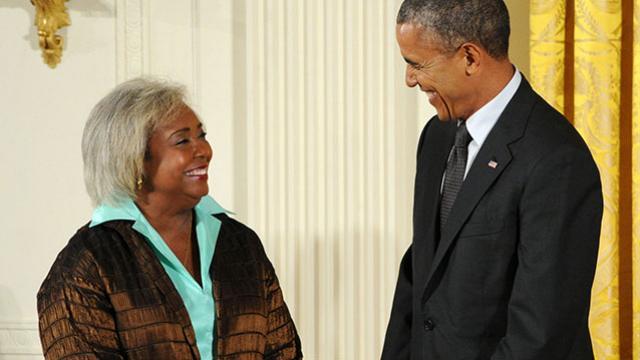Northwestern University will host “Hinesight: A Symposium on the Work of Darlene Clark Hine,” a two-day event honoring the pioneering historian’s contributions to African-American women’s history as well as the impact of her leadership and mentorship.
Hosted by the University’s Center for African American History along with the department of African American Studies, the symposium will be held May 12 and 13 at the Hilton Orrington, 1710 Orrington Ave., in Evanston.
A leading historian of the African-American experience, Hine helped found the field of Black women’s history and has been one of its most prolific scholars.
In 2014, President Barack Obama presented Hine with the National Humanities Medal “for enriching our understanding of the African-American experience. Through prolific scholarship and leadership, Dr. Hine has examined race, class and gender and shown how the struggles and successes of African-American women shaped the nation we share today.”
See schedule for additional information.
The symposium will examine Hine’s body of work and research agenda and consider her impact on Black women’s history, comparative Black history, Black studies and American history.
In addition, the symposium will feature a number of Hine’s former students and collaborators who have gone on to produce their own scholarly contributions.
On Friday, May 12, remarks will be given by senior university administrators and former students, followed by a plenary session and reception.
On Saturday, May 13, panels include “Gender, Violence and Diaspora,” “Black Women’s History” and “Black Women and the Health Profession.”
The research the panelists will discuss emerged from Hine’s scholarship.
The symposium will conclude Saturday with Hine’s closing remarks.
“Hine, is without question, one of the leading voices of the last four decades in the areas of Black political history, Black women’s history and comparative Black history,” said Sherwin Bryant, associate professor of African American studies and history and director of the Center for African American History at Northwestern. “In addition to guiding the research of her own students, she has mentored and nurtured the scholarship and careers of a long list of junior faculty here at Northwestern and beyond.”
Hine, who will retire at the end of the academic year, has served as the Board of Trustees Professor of African American Studies and History in the Weinberg College of Arts and Sciences at Northwestern since 2004. Over the course of her career, Hine has contributed greatly to the institutionalization of Black women’s history, leading the way for revisions within Black historiography and American history more generally.
Hine, is without question, one of the leading voices of the last four decades in the areas of Black political history, Black women’s history and comparative Black history.”
associate professor
Hine teaches both African-American studies and history at Weinberg. She is the author or editor of numerous publications including, “The African-American Odyssey,” “Beyond Bondage,” “Black Women in White: Racial Conflict and Cooperation in the Nursing Profession,” “A Question of Manhood,” and “A Shining Thread of Hope: The History of Black Women in America.”
A past president of the Organization of American Historians and the Southern Historical Association, Hine has been awarded fellowships and grants by the American Council of Learned Societies, the Center for Advanced Study in the Behavioral Sciences, the Ford Foundation, the National Endowment for the Humanities, the National Humanities Center, the Radcliffe Institute for Advanced Study and the Rockefeller Foundation.
In 2010, the Organization of American Historians established the Darlene Clark Hine Award, which is given annually to the author of the best book in African-American women’s and gender history.


